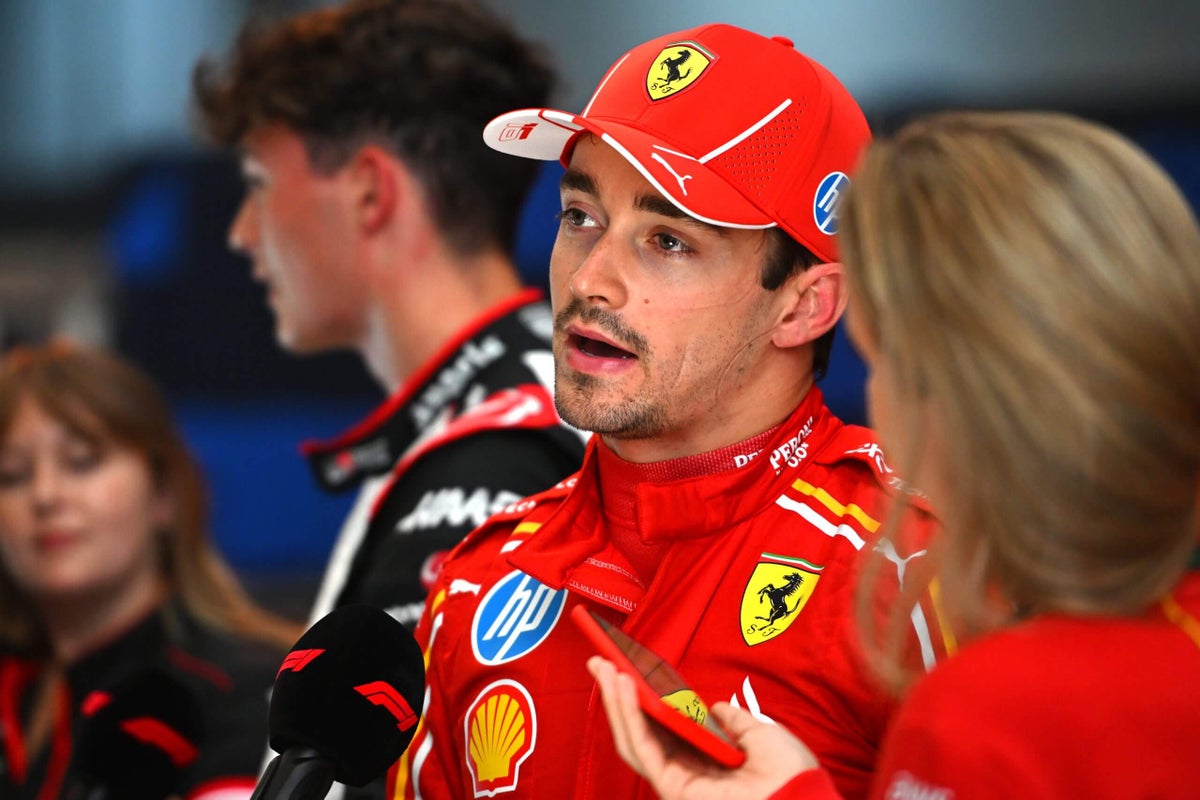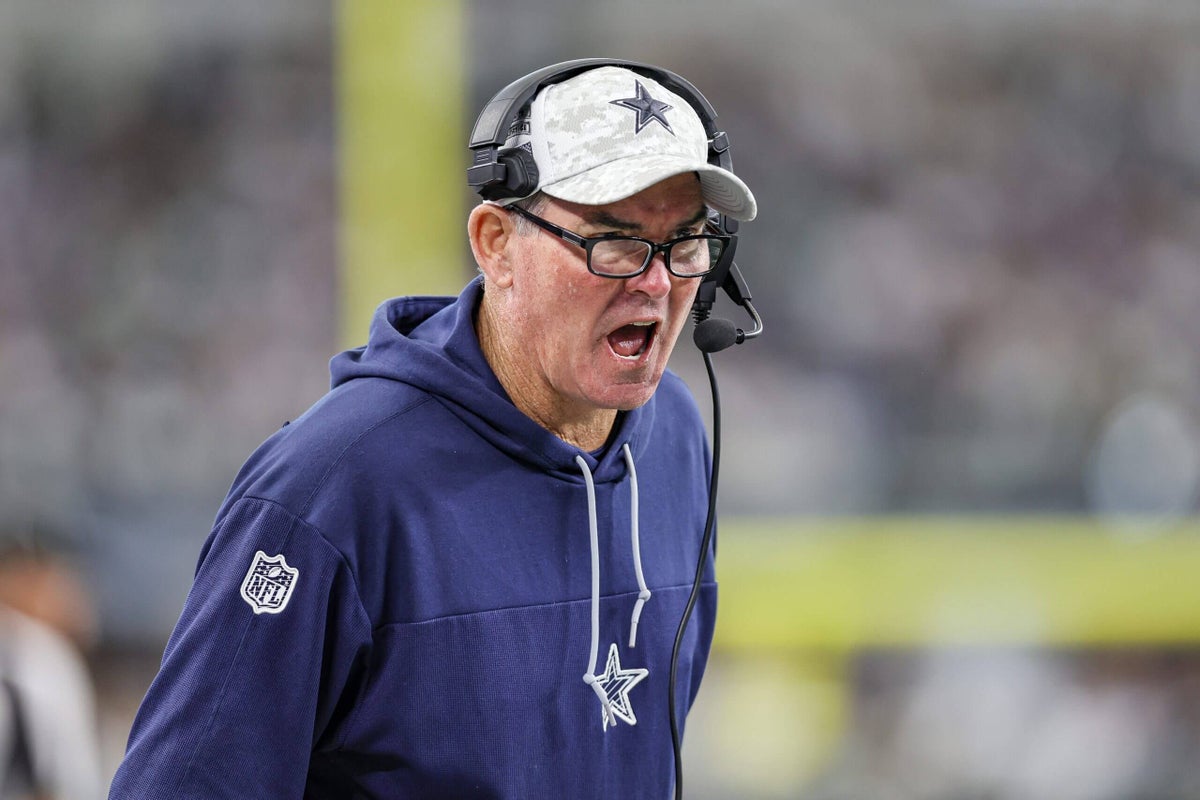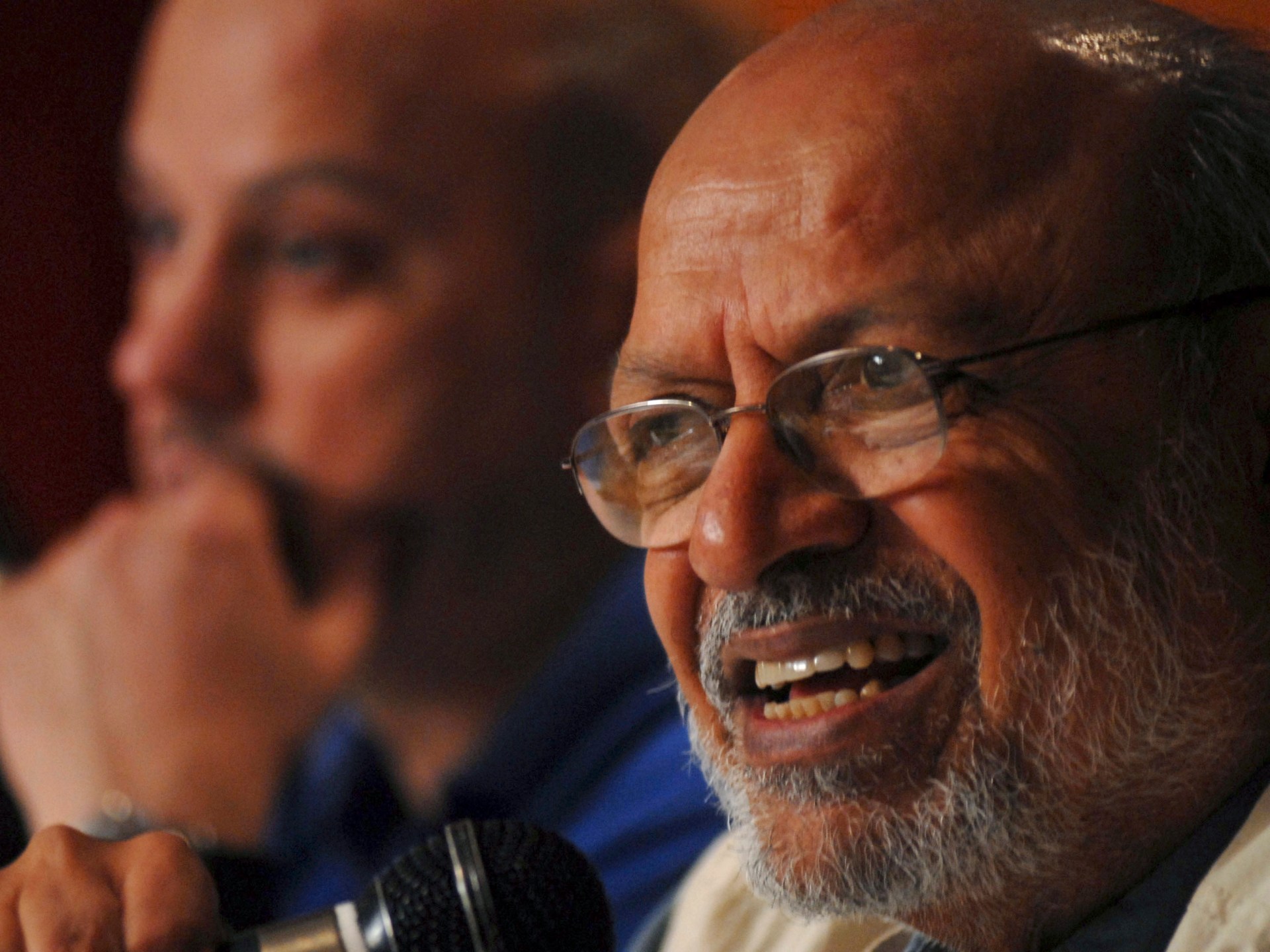Within two seconds of the word leaving his mouth, Charles Leclerc, the Ferrari Formula One driver, knew what he had done.
Leclerc had been describing the moment when, in the closing stages of the Mexico City Grand Prix, he almost lost control of his car at 100 mph through the final corner and narrowly avoided crashing into the nearby wall.
It would have been a huge accident that, understandably, spooked Leclerc. So when he retold that moment, saying his reaction had been “f—!” seemed accurate.
But Leclerc knew what he’d done. At a time when swearing has become such an F1 no-no, seemingly at the behest of FIA president Mohammed Ben Sulayem, he knew he was in trouble.
“Oh no! Oh no … I don’t want to join Max,” Leclerc said with a resigned laugh.
That was in reference to Red Bull driver Max Verstappen, who, after describing his car as being “a bit f—” in the news conference ahead of the Singapore Grand Prix, was hit with a requirement to complete community service for the FIA as punishment for “misconduct.” Verstappen responded in the post-qualifying and post-race news conferences by giving short answers, protesting the “ridiculous” sanction.
Once the news conference ended in Mexico, Leclerc was immediately spoken to by an FIA official as the governing body weighed whether to formally investigate what he had said. On Friday in Mexico, the stewards met with Leclerc and gave him a €10,000 fine, half of which is suspended, for his language.
You could see from Leclerc’s immediate reaction he knew he’d done wrong. According to the stewards’ document, written as formally as it would be for a major on-track incident or regulation breach, Leclerc was “immediately apologetic,” which it considered to be a mitigating factor when deciding to fine him, instead of awarding the same penalty as Verstappen.
Verstappen referenced the stewards’ varying approaches to swearing on Thursday during a somewhat terse news conference appearance after public criticism about his driving style following the recent battles with Lando Norris.
Verstappen — who is back to giving fuller answers in the FIA-arranged sessions — said he was not listening to people who were “just there to stir … I can’t say the word, because I’ll probably get another (penalty). I mean, apparently, it only counts for me anyway because, after the race in Mexico, someone was swearing. I didn’t hear anything from it.”
The FIA was already considering action against Leclerc prior to Verstappen’s comment, but it does raise a fair point. At a time when there are serious questions over the consistency of F1’s stewards, effectively the referees for what happens on and off the race track, even two f-bombs are treated in different ways.

Verstappen speaks at the FIA news conference on Thursday. (MIGUEL SCHINCARIOL/AFP via Getty Images)
Was it necessary from either Verstappen or Leclerc to swear? No, definitely not. In both cases, it did just slip out. In both cases, the driver apologized when summoned by the stewards. The bigger difference is Verstappen’s more public frustration, a frustration that has been supported by his fellow drivers, in response to the action by the FIA.
The FIA’s argument is that the drivers are role models and, therefore, should avoid using coarse language in what it referred to in the Leclerc decision document as “public forums” and that such language is “not considered suitable for broadcast.”
It gets away from the fact this was a news conference. Its purpose should be kept in mind. For the top three finishers after the race, it is the only opportunity for the non-broadcast media to talk to the drivers. Only the most diehard F1 fans will actively track down a way to access the post-race news conference, making it unlikely for anyone who does to be outraged or offended by one swear word. It’s not easy to stumble across.
“I don’t think anybody listens to the FIA press conference anyway,” Toto Wolff, the Mercedes team boss, said in Singapore. Verstappen admitted in Austin that he’d never watched a news conference in his life. Something similar is probably true for the rest of the F1 grid.
A lot of this from the FIA is about setting an example. The action against Verstappen in Singapore came off the back of comments made by Ben Sulayem in an interview with Autosport, where he called on drivers to stop swearing on the radio in the cockpit in the heat of the moment. “We’re not rappers, you know,” Ben Sulayem said. “They say the f-word how many times per minute?” That in itself sparked a response from Lewis Hamilton, who called out the “racial element” of Ben Sulayem’s explanation.
There is a fine line to strike on swearing. The intent is important here. In the case of the hefty fine given to Yuki Tsunoda for his use of ableist language in Austria, that is the kind of thing that needed and justified quick, clear action. It was an unacceptable thing to say about another driver, no matter how angry he may have been. Tsunoda apologized and showed contrition for what he said.
There is no need for swearing to become part of every F1 news conference answer. These drivers are, as much as they may not enjoy media duties, at work, and should handle themselves in a professional manner. But using a curse word to describe an inanimate object like a car, as Verstappen did, or, in the case of Leclerc, having it slip out when asked a leading question over his reaction to what could have been a very nasty crash, that is surely not the kind of intent that needs such scrutiny.
The drivers are on the same page. On Friday night in Mexico, they took part in a long-planned and lengthy Grand Prix Drivers’ Association (GPDA) meeting, the body effectively serving as their union. In the wake of the incident between Verstappen and Norris in Austin, driving guidelines were in the spotlight, foreshadowing an escalation of the issue in Mexico. But the FIA’s response to the swearing debate was also up for discussion.
The group plans to issue a letter soon to put out all of its thoughts on the various current topics in F1. One thing George Russell, a GPDA director, said they wanted clarity on was where the money for fines against teams and drivers went, given the lack of professional, full-time stewards that he felt could offer consistency in decision-making. The FIA has always put this money toward its grassroots racing programs that help it expand motorsport around the world.
It all ties into the same issue over whether the sport is becoming over-regulated. The driving guidelines debate ignited further after Verstappen’s time penalties in Mexico for his moves against Norris, with Red Bull team boss Christian Horner claiming the Dutchman had done nothing wrong at Turn 4, and that it was Norris who had exposed a loophole in the rules. Both sides of the debate feel there needs to be more common sense and logic applied.
The same is true when it comes to swearing.
“It goes back to not having a set of regulations 100 pages long saying you’re allowed to say this, you can’t say that …” Russell said in Mexico. “I think common sense needs to be applied, and if somebody does swear inappropriately, then maybe there should be the appropriate fine or whatever against that. Community service seems a little bit too much for the crime that was committed.”
In the case of both Verstappen and Leclerc, it could have been a very easy fix: accept their apology, tell them not to do it again and remind them of their duties as role models. Point made, move on. It didn’t need to be turned into a bigger issue through stewards’ summons, Verstappen’s protest, or the virtual ink — case in point, this article — being spilled on the topic.
At the end of what has turned into a classic F1 season, with a championship fight in full swing that will keep the racing rules and any stewards’ decisions in the spotlight, that needs to be the focus of the FIA’s energy right now — not a couple of curse words.
Top photo: Rudy Carezzevoli/Getty Images













Leave a Reply